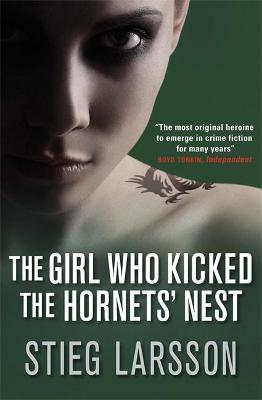If it was any other writer, I would say that the writing style absolutely does not work, that there is just too much of every little thing. But somehow, it absolutely does work. Instead of bogging me down with unnecessary detail, it brings me into the story in a deeper way.
This book marks the end of the original trilogy written by Stieg Larsson, each book very different than the last. The first was an odd but intriguing mash-up of a serial killer thriller and a political thriller, with some Silence of the Lambs vibes. Then book two was focused around the politics of the Swedish police and the media. And this one felt like a legal thriller. There is no doubt that the books are a statement about the existence of some rather heavy-handed misogyny. In fact, together, the three books could be seen as a bit of a manifesto on that misognyny and the resulting injustices faced by women in Swedish societies.
This installment really allowed for a broader insight into Lisbeth’s past. She is an interesting character that is somehow both the villain and the hero, often at the same time. This book really helps to explain why she is the way she is, diving deeper into the things that have happened to her.
This is not an read for the faint of heart. It’s dark, often horrifying, but it’s also deeply intense and engrossing.
